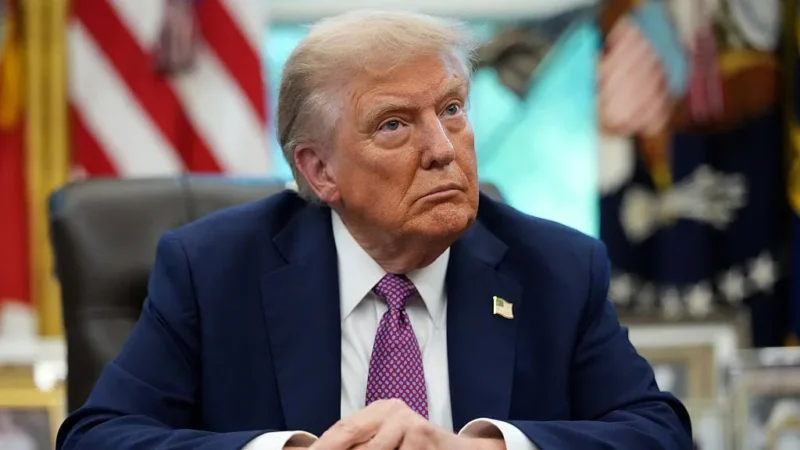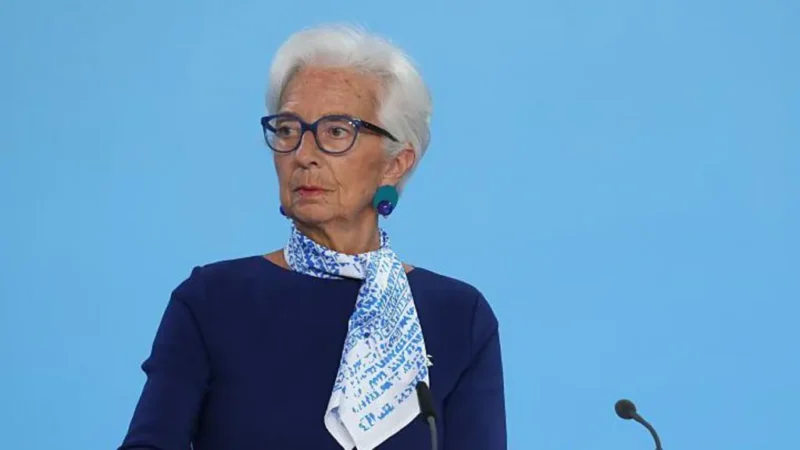Lisa Cook to Sue Trump Over Attempt to Remove Her from Federal Reserve

Federal Reserve Governor Lisa Cook plans to sue President Donald Trump following his attempt to remove her from office, potentially triggering a major legal showdown over the independence of the U.S. central bank.
“President Trump has no authority to remove Federal Reserve Governor Lisa Cook,” said her attorney, Abbe David Lowell, who confirmed legal action will be filed. The move, he argued, lacks any factual or legal basis and violates the protections provided under federal law.
Trump defended his action by citing what he described as discrepancies in Cook’s past mortgage applications. He claimed constitutional authority to remove her, stating there was “sufficient reason” to believe she had submitted false statements.
The attempt is unprecedented and has already sent shockwaves through financial markets, as it raises serious concerns about political interference in the Federal Reserve’s operations.
Investor Anxiety and Market Impact
Following the news, long-term U.S. government bonds sold off, a signal that investors are worried about the potential erosion of the Fed’s independence. A weakened perception of the central bank’s neutrality could increase borrowing costs for the government and disrupt global financial stability.
The Federal Reserve issued a statement emphasizing that board governors are appointed for fixed terms and may only be removed “for cause,” as defined by the Federal Reserve Act. These legal protections are designed to keep monetary policy decisions insulated from political influence.
The Fed added that it would comply with any decision made by the courts in response to the lawsuit.
Cook’s Role and Response
Lisa Cook, appointed in 2022, is the first African American woman to serve on the Federal Reserve Board of Governors. She is one of seven governors and holds a vote on the Federal Open Market Committee, which sets U.S. interest rates.
At the central bank’s most recent policy meeting in July, Cook voted with Chair Jerome Powell and other committee members to maintain current interest rates.
Cook has denied any wrongdoing, explaining that the mortgage-related allegations involve a four-year-old loan application submitted before she joined the Fed. The allegations emerged in a letter from housing finance advocate and Trump ally Bill Pulte, who sent what he called a “criminal referral” to the Department of Justice.
Trump later amplified the claims on social media, accusing Cook of signing mortgage documents for two properties—one in Michigan and one in Georgia—each claiming to be her primary residence within the same year.
Cook responded by stating she only learned of the allegations through the media and has no intention of stepping down. “I will not resign. I will continue to carry out my duties to help the American economy as I have been doing since 2022,” she said.
A Broader Battle Over the Fed
Trump has hinted at replacing Cook with someone more aligned with his economic goals, including favoring lower interest rates. “We need people that are 100% above board, and it doesn’t seem like she was,” he said during a recent cabinet meeting.
The legal battle could set a powerful precedent regarding presidential authority over the Federal Reserve, which is designed to function independently of short-term political pressure.
This is not the first time Trump has clashed with the Fed. He previously criticized Chair Powell, whom he appointed in 2018, for not cutting interest rates aggressively enough.
Global Implications
Financial markets reacted quickly. European stocks dipped, yields on U.S. Treasury bonds rose, and the U.S. dollar briefly weakened against other major currencies before recovering.
“Markets are now watching closely,” said Julia Lee, head of client coverage at FTSE Russell. “If Trump succeeds in replacing Cook, it raises the question of whether he could reshape the entire makeup of the Fed — and how that might affect investor confidence in the U.S. economy.”
The outcome of this legal challenge may not just determine Lisa Cook’s future — it could also redefine the limits of presidential power over the central bank and reshape global perceptions of U.S. monetary policy.






